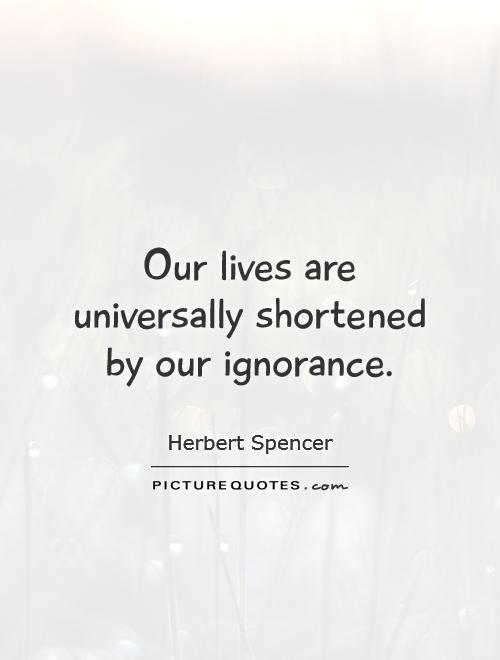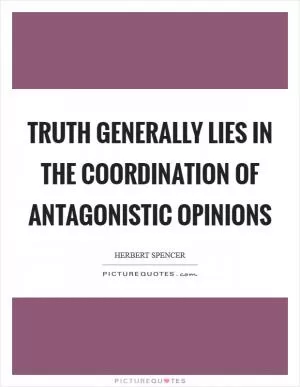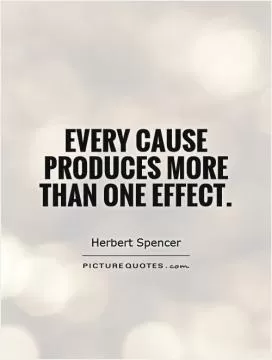Our lives are universally shortened by our ignorance

Our lives are universally shortened by our ignorance
Herbert Spencer, a prominent philosopher and sociologist of the 19th century, believed that ignorance was a major factor in shortening the lives of individuals. He argued that our lack of knowledge and understanding about the world around us ultimately leads to poor decision-making, unhealthy habits, and ultimately, a shorter lifespan.Spencer believed that ignorance was not just a personal failing, but a societal issue as well. He argued that the lack of education and critical thinking skills in society as a whole contributed to a wide range of problems, including poverty, disease, and violence. In his view, ignorance was a root cause of many of the social ills that plagued humanity.
One of Spencer's key ideas was the concept of "survival of the fittest," which he believed applied not just to the natural world, but to human society as well. He argued that those who were able to adapt to their environment and make informed decisions would be more likely to survive and thrive, while those who were ignorant or unable to think critically would be at a disadvantage.
Spencer's ideas about the impact of ignorance on human life have been echoed by many other thinkers throughout history. For example, the Greek philosopher Socrates famously said that "the unexamined life is not worth living," suggesting that a lack of self-awareness and critical thinking could lead to a wasted existence.
In modern times, the importance of education and critical thinking skills in promoting health and longevity is widely recognized. Studies have shown that individuals with higher levels of education tend to live longer and have better overall health outcomes than those with lower levels of education.












 Friendship Quotes
Friendship Quotes Love Quotes
Love Quotes Life Quotes
Life Quotes Funny Quotes
Funny Quotes Motivational Quotes
Motivational Quotes Inspirational Quotes
Inspirational Quotes